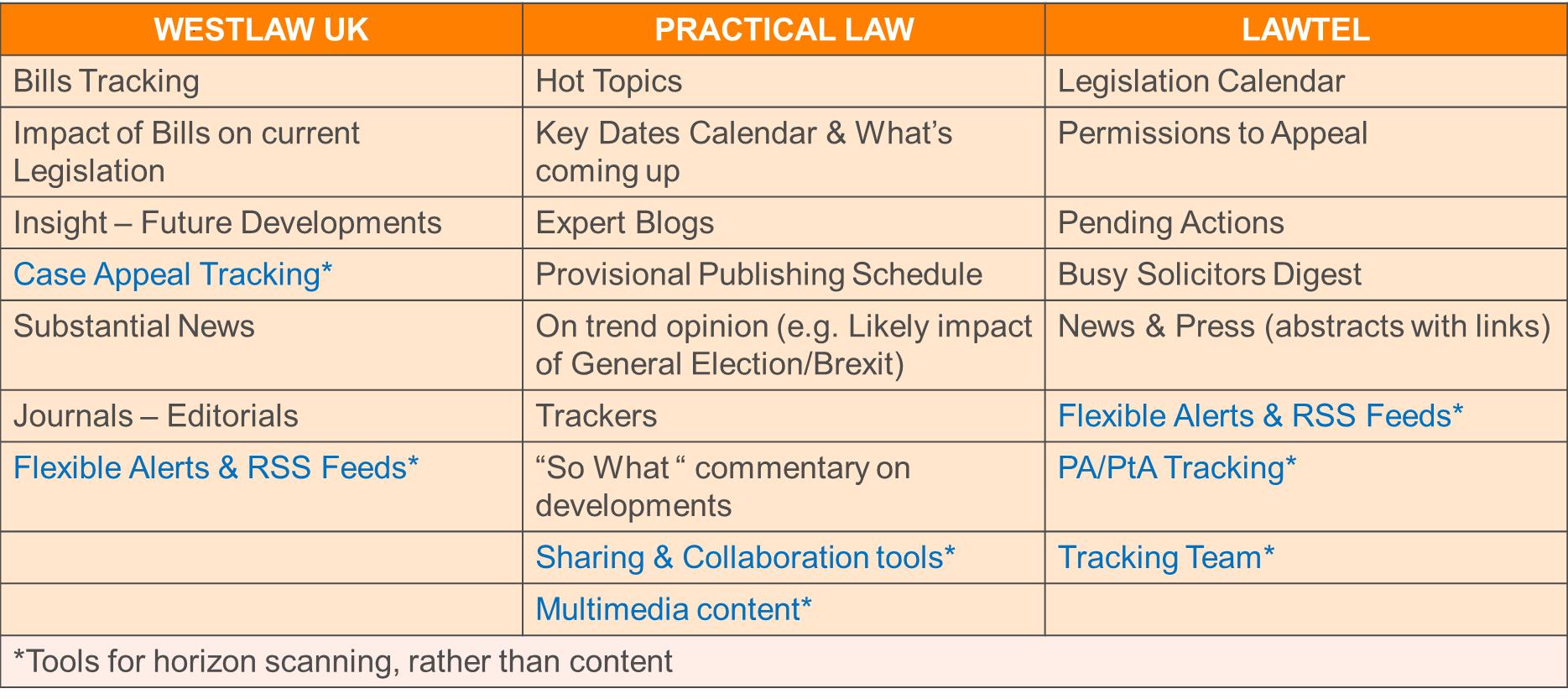In this ever-changing legal climate, it is now more important than ever for legal professionals to know the future state of their field, anticipate changes in the law and the effect it could have on how they, their clients and regulators operate. Horizon scanning has become an essential part of how lawyers work, enabling them to better identify, prepare and anticipate legal developments and changes in legislation.
This seems to present a useful opportunity to define what is meant by horizon scanning, and to take a closer look at some of the tools available to lawyers in this area.
The starting point for this is to explore the important distinction between current awareness and horizon scanning, one which can sometimes be overlooked. Current awareness can be seen as being about what is happening today, tomorrow, next week. It is the right now. In contrast, horizon scanning is about looking at what we need to be aware of to plan for success. It is about looking over tomorrow and forward to the next 12 months and beyond.
In addition to this general definition of horizon scanning, it can be drilled down further to distinguish between two types. The first of these can be referred to as ‘wide net’. This is the comprehensive, sustainable, quick and automated approach to horizon scanning. It is impossible to know which developments may have an impact, so there is a need to be sure you can catch them all. A new bill may have an impact for a seemingly unlikely practice area, or test cases could turn into class actions. The ‘wide net’ enables you to be certain that you are capturing all the information you need to allow for any possible developments.
The second type can be referred to as ‘sharp focus’ horizon scanning. Once a trend has been identified, the sharp focus is about how you track this moving forward. It is about making sure you can understand the potential scope and impact of a trend. To be able to do this effectively, you need to be sure that you are using key trusted commentary and expertise, avoiding information overload. Sharp focus is also about being able to access relevant analytical information on a trend in a timely and flexible way. Importantly also is the need for easy dissemination of this information. It will need to be able to be automated, and repeatable, presented in a flexible format as different people will have different needs and aims.
Having now explored what it means to practice horizon scanning, it is useful to mention some of the tools that are available to lawyers to enable them to carry this out. Thomson Reuters have three products all offering horizon scanning capability; these are outlined in the table below:

It is also worth highlighting the most recent content piece produced by the Practical Law in-house editorial team, a comprehensive report looking at how in-house lawyers are approaching and preparing for Brexit:
Practical Law survey report: the in-house approach to Brexit
If you would like to find out more about any of the products listed in the table above, please follow the links below:
Take advantage of our bespoke training to learn more about horizon scanning:
If you are a subscriber to any of our products and would like to benefit from our complimentary training please contact the team with your requirements: trainingrequest@thomsonreuters.com. Training is offered in a variety of formats tailored to suit you; it can be given in your office, over the phone or online via our live webinar sessions.
We can also create bespoke sessions, so if you are unsure of the most effective training methods for your organisation, or would like a targeted session on horizon scanning, please get in touch with us and we will happily discuss all of the options available in order to devise a customised programme for you.
For additional information on horizon scanning, its application, and importance, visit: Forward Thinking: Horizon scanning for lawyers
